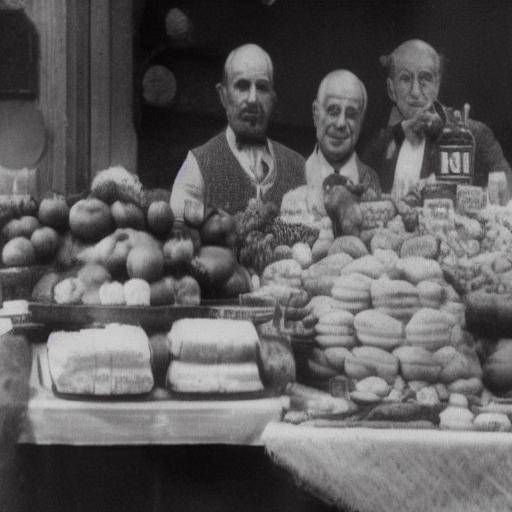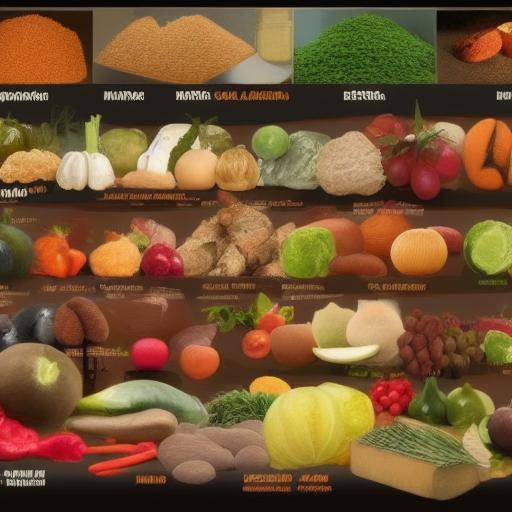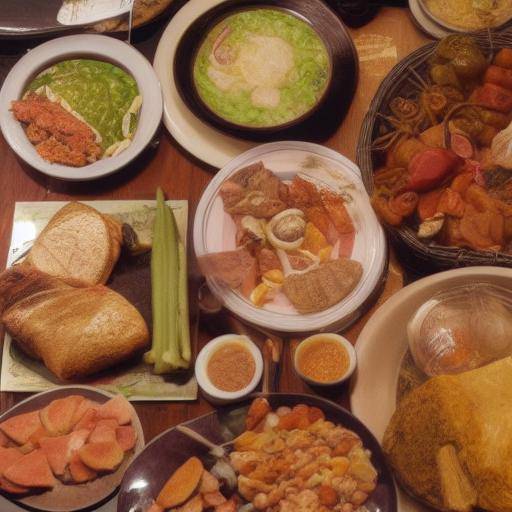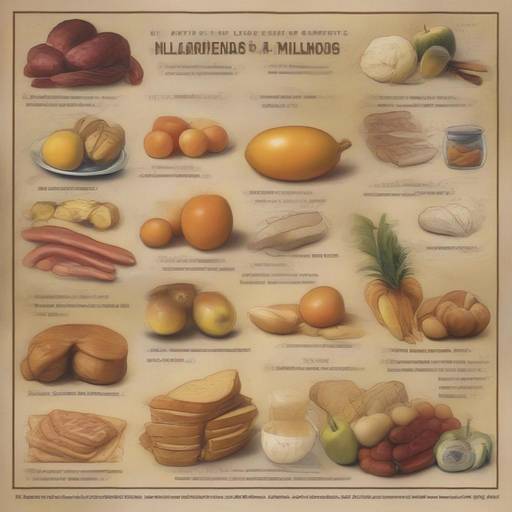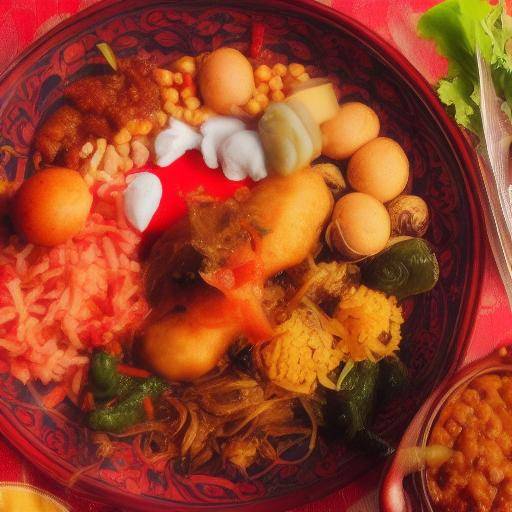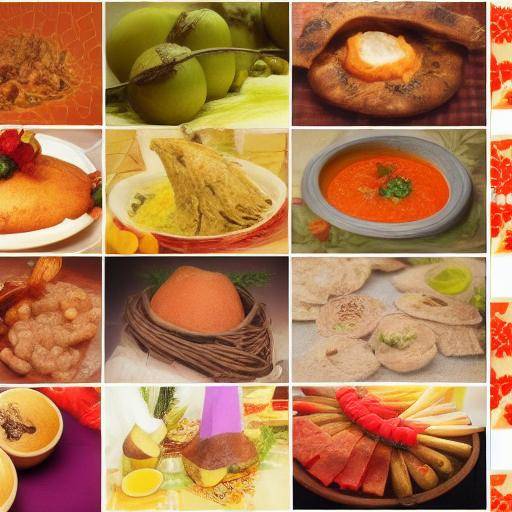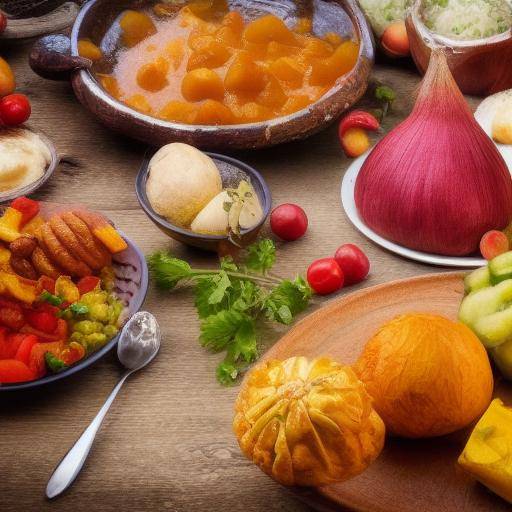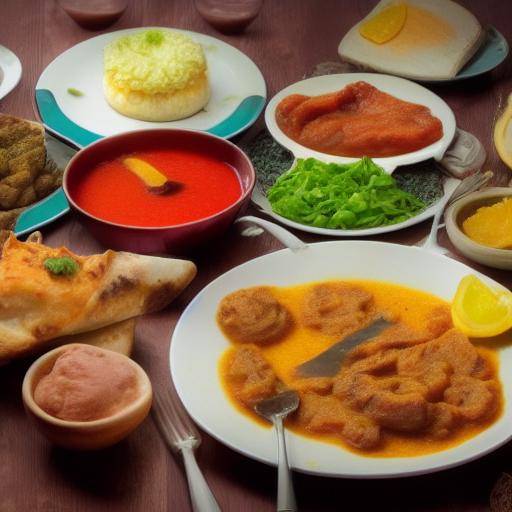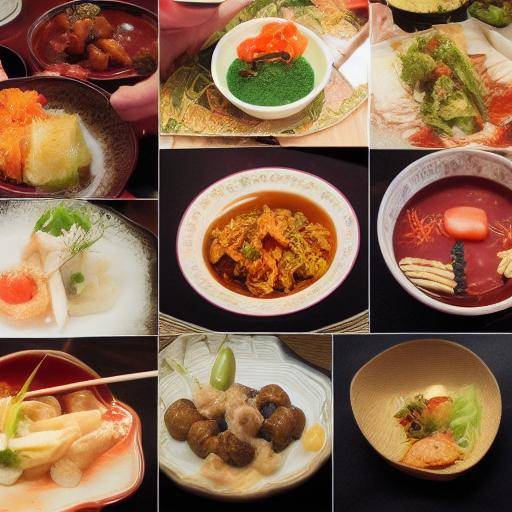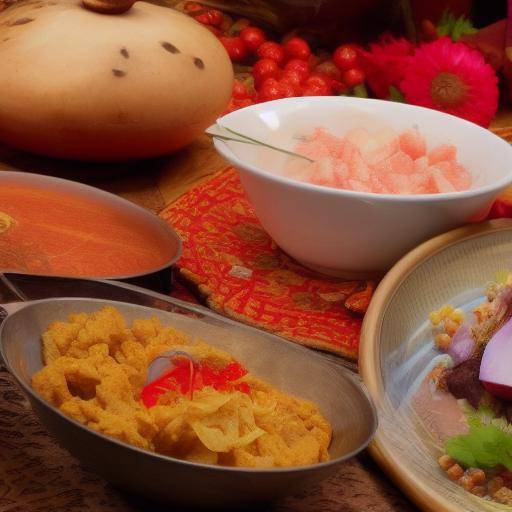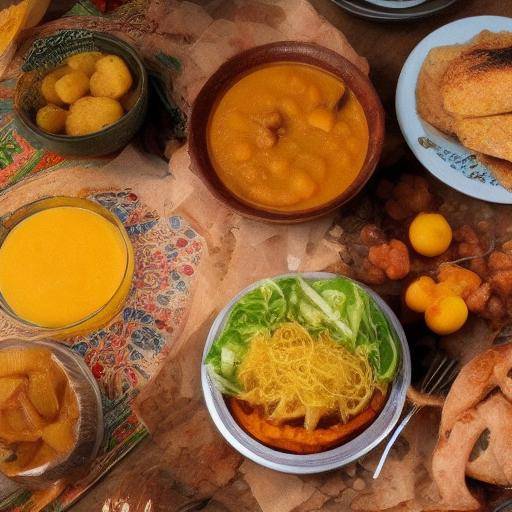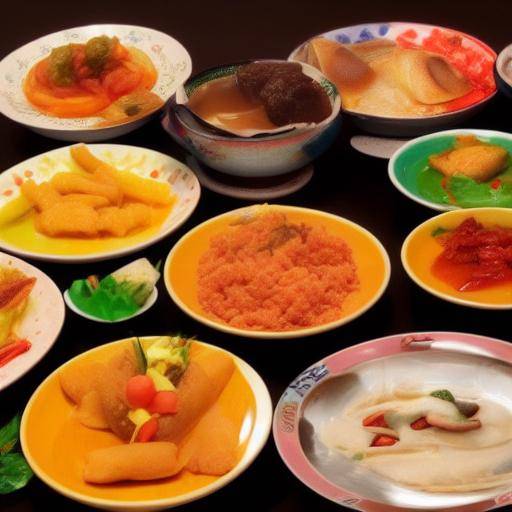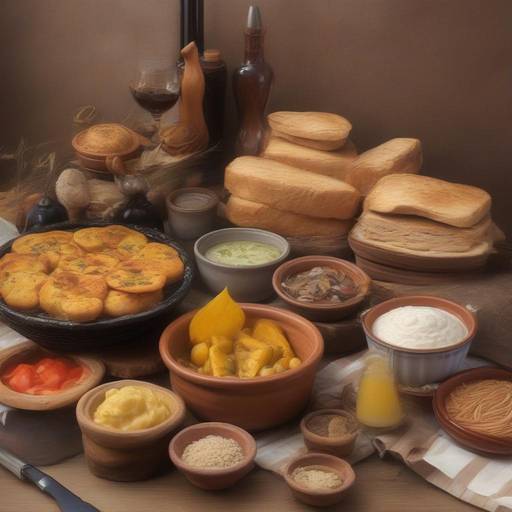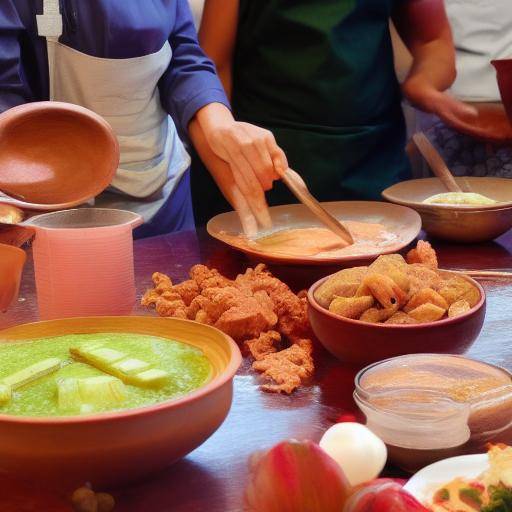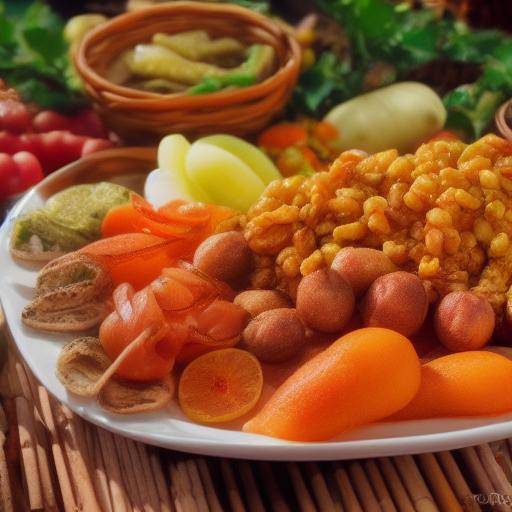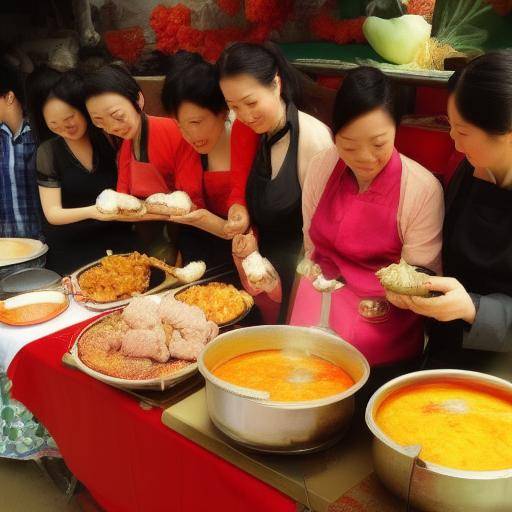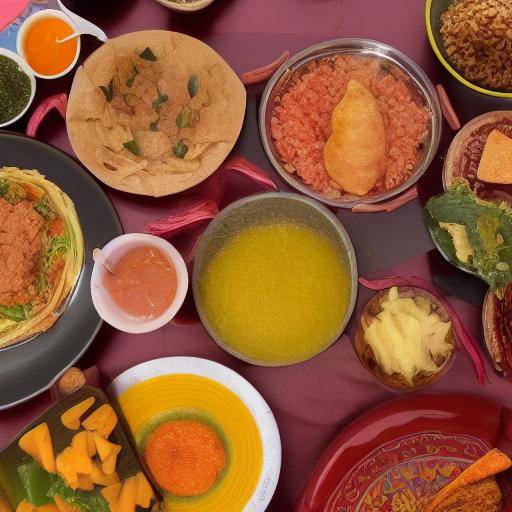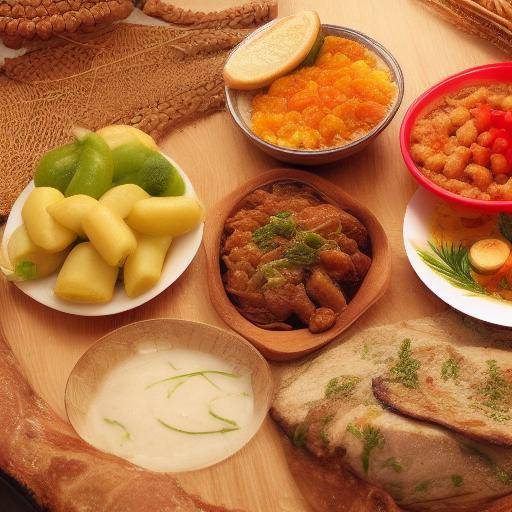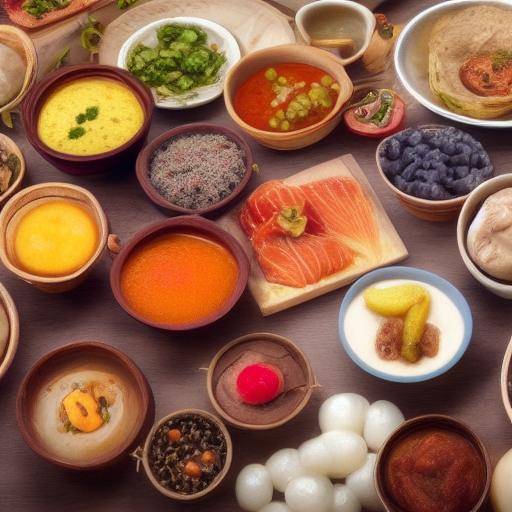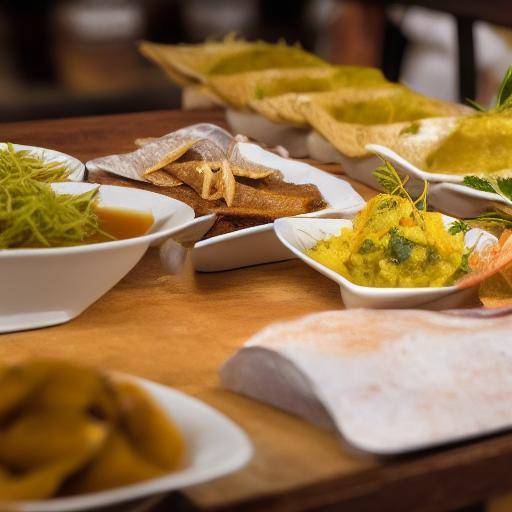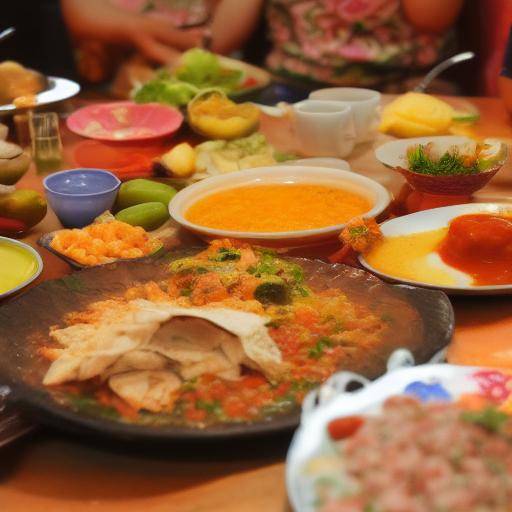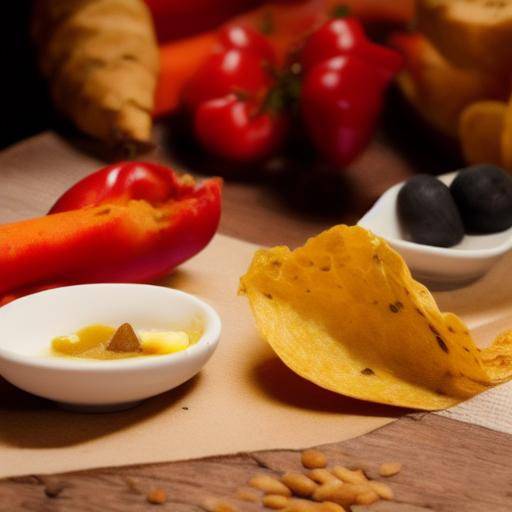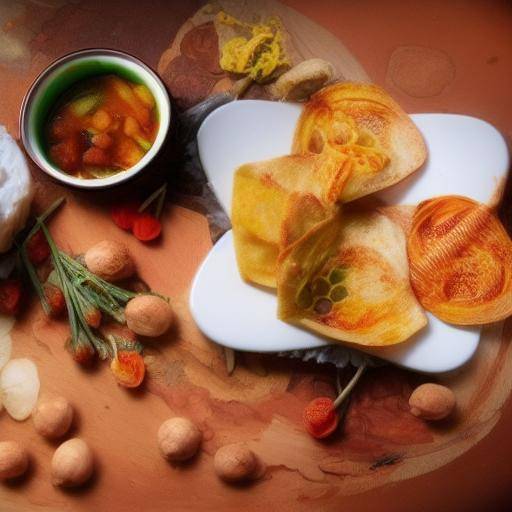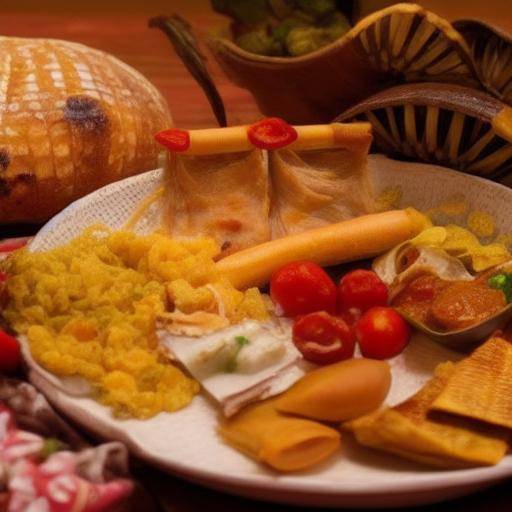
Introduction
Imagine the exotic aromas of spices, the vibrant colouring of fresh ingredients and the captivating flavor of traditional dishes that characterize African gastronomic culture. This article will immerse you in a culinary journey to discover the rich gastronomic traditions rooted in the vibrant African culture. We will explore the fascinating history, culinary diversity, distinctive ingredients, and cultural influences that have shaped African food. In addition, we will unravel the importance of these traditions in cultural identity and global projection in the contemporary culinary landscape.
Gastronomic Traditions in African Culture: A Brief Historic Look
Since time immemorial, food has occupied a central place in African culture. The gastronomic traditions in Africa are a reflection of the rich historical legacy and the diverse cultural influences that have deeply marked the culinary identity of the continent. Let us enter the historical journey to understand the evolution of gastronomic traditions in African culture and their resonance today.
Origins and Gastronomic Diversity
The rich and diverse African culinary heritage dates back to the ancestral hunting, harvesting and agriculture practices of the different communities that populated the continent. African gastronomic traditions are impregnated with incomparable diversity, ranging from the intense and spicy flavors of West Africa to the comforting and aromatic dishes of East Africa. The diversity of indigenous ingredients, traditional culinary techniques, and the influence of rich oral traditions have shaped the rich palette of flavors that define African cuisine.
Historical Influences and Culinary Culmination
The legacy of historical influence, from the transaharian trade routes to the colonial era, has left a marked mark on African gastronomic traditions. The introduction of spices, crops, and culinary techniques by Arab, European and Asian traders has enriched and diversified African cuisine. These influences were intertwined with indigenous culinary practices, resulting in the wealth and complexity of the African food we know today.
Cultural and Social Importance
Food in African culture transcends its nutritional function to become a vehicle of cultural expression, social cohesion, and preservation of ancestral heritage. Culinary rituals, the preparation of shared food, and culinary festivities occupy a central place in everyday life and community celebrations, consolidating cultural identity and strengthening social ties. African gastronomic traditions are a living witness to the rich cultural heritage and vitality of African communities.
The Awakening of African Cuisine: Innovation, Globalization and Preservation
In the midst of growing globalization, African cuisine has acquired greater international projection, awakening renewed interest in its culinary traditions, indigenous ingredients, and innovative techniques. This section is immersed in a deep analysis of the benefits, challenges, and current trends that shape the contemporary African culinary landscape.
Revaluation of Ingredients and Techniques
The resurgence of African cuisine has led to the revaluation of indigenous ingredients and traditional techniques, reaffirming culinary identity and promoting food sustainability. Exotic spices, ancestral grains, and traditional cooking methods have attracted the attention of chefs and gastronomic enthusiasts, feeding a wave of rediscovery and appreciation of the culinary wealth of Africa. This trend has fueled a renewed sense of cultural pride and helped to rescue traditional ingredients and flavors that were, in a way, marginalized by the influence of globalization.
Challenges and Opportunities
While the rebirth of African cuisine has opened new opportunities, it has also raised challenges in the preservation and promotion of gastronomic traditions. The homogenization of food habits and adaptation to global market demands can threaten the authenticity of African culinary traditions. Preserving the balance between culinary innovation and the preservation of gastronomic heritage emerge as crucial challenges that require careful reflection and a sustainable approach.
Current Trends and Global Projection
African cuisine experiences a vertiginous global projection, gaining space in international culinary scenarios and captivating the palate of food fans around the world. From high cuisine restaurants to the spread of traditional recipes on digital platforms, the presence of African cuisine is strengthened, weaving a diverse cultural upholstery that transcends borders and arouses interest in the culinary wealth of the continent.
A Detailed Exhibition: Flavors, Ingredients and Techniques in African Cuisine
Let us deepen in the very essence of African gastronomic traditions, disaggregating the diversity of flavors, distinctive ingredients, and culinary techniques that define the cuisine of the continent. From vibrant spices to ancient preparation techniques, each element reveals a fascinating story that enriches the global culinary landscape.
The Magic Fusion of Flavors
The flavors of African cuisine give life to a unique and captivating symphony. From the audacious and spicy character of the cocoa sauces of West Africa to the refined subtlety of the Tagine stews of North Africa, the fusion of flavors is a testament to the diversity and originality of African cuisine. The spices, herbs and condiments play a central role, providing depth and complexity to the emblematic dishes of the region.
Emblematic and Different Ingredients
African cuisine has a wide range of emblematic ingredients that reflect the richness of its flora and fauna. From the abundant use of smear and banana in the West African diet to the veneration of teff and sorghum beans in the Horn of Africa region, each ingredient provides authenticity and cultural roots to their respective cuisines. The ingenious use of ingredients such as dry fish, palm oil and neck eggplant, among others, illustrates culinary diversity and the uniqueness of African food.
Traditional Techniques and Culinary Secrets
Culinary techniques in Africa are permeated with tradition, passion and knowledge transmitted from generation to generation. From the slow coarseness of scaffolding to the skillful use of the panties to highlight the smoky flavor in the grills, African culinary techniques reveal a deep root in nature and a respect for the ingredients. The grinding of grains in stone mortars and the fermentation of traditional foods, such as injera, showcase the ancient culinary art that underlies in African gastronomy.
A Comparative Analysis: Diversity of Gastronomic Traditions, Cultural Identity and Global Projection
Submerged in a comparison of African gastronomic traditions allows us to appreciate culinary diversity, explore cultural intersections, and understand the global relevance that African food has acquired in the international gastronomic landscape.
A Mosaic of Culinary Traditions
Africa is a vast and diverse continent that houses a mosaic of culinary traditions, each with its unique identity and rich history. The cuisine of the Magreb, with its Berber, Arab and Mediterranean influences, stands out for its elaborate couscous and tagines, while in West Africa, the masterful use of ingredients such as fish, smear and palm oil defines the essence of its cuisine. In contrast, in East Africa, the combination of aromatic spices and the traditional use of the injera reveal the distinction of Ethiopian and Eritrean cuisine. The comparison of these gastronomic traditions highlights the wealth and complexity of African food, weaving a dynamic and incomparable culinary tapestry.
Cultural Intersections and Culinary Synergies
African gastronomic traditions, while different, share cultural intersections that reveal historical and migratory links. The presence of common ingredients, such as millet, corn and fish, as well as the sharing of culinary techniques, evidences the synergies that forge a bridge between different African cuisines. Transcultural interactions and the influence of the African diaspora have helped to enrich and expand the gastronomic dimensions, providing a unique perspective on the interconnection of the culinary traditions of the continent.
Global and Legacy Projection
African cuisine has achieved a significant global projection, gaining ground in international culinary scenarios and adding a distinctive nuance to global gastronomic diversity. The popularity of dishes such as jollof rice, the Ethiopian injera, and Moroccan lamb dishes show the growing recognition and appreciation for African food around the world. At the same time, African chefs and the diaspora continue to promote the culinary legacy and redefine the narrative on African cuisine, placing their influence significantly on the contemporary gastronomic landscape.
Key Practices and Accionable Tips: Discover and Enjoy African Gastronomic Traditions
Now that we have explored the wealth and diversity of African gastronomic traditions, it is time to enter the African culinary world to discover, enjoy and fully appreciate these culinary treasures. Next, we present practical keys, actionable tips and recur

